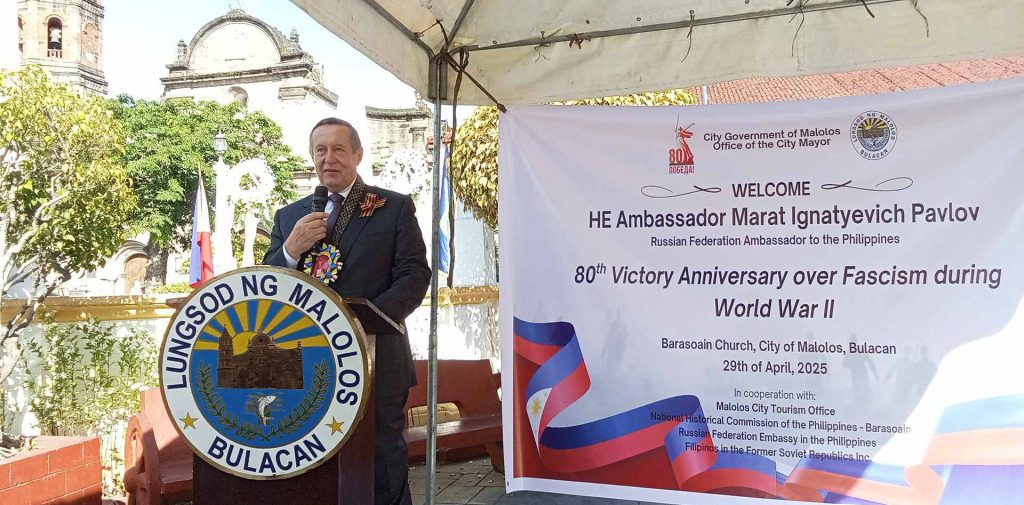
MALOLOS CITY – The National Anti-Poverty Commission (NAPC), together with various sectors in Bulacan, is stepping up efforts to strengthen ties with the Russian Federation, particularly in the fields of education and investment.
This renewed cooperation was highlighted during the recent visit of Russian Ambassador to the Philippines Marat Ignatyevich Pavlov to the City of Malolos, where he led the commemoration of the 80th Anniversary of the Great Victory Over Fascism during World War II held at the Barasoain Church.
NAPC Secretary Lope Santos III, who accompanied the ambassador, emphasized that this historical remembrance must inspire Bulakenyos to transform past victories into concrete achievements, particularly through the realization of the United Nations’ 2030 Sustainable Development Goals (SDGs).
He said the strengthening of Philippine-Russia ties, especially in a progressive province like Bulacan, lays a solid foundation for expanded cooperation in trade, education, and socio-cultural initiatives.
Santos also cited the 2017 Philippines-Russia Dialogue, which prioritizes joint projects in science and technology, agriculture, energy, transport, education, culture, and sports.
The NAPC official also stressed the value of sustained partnerships under the Association of Southeast Asian Nations (ASEAN)-Russia dialogue partnership, which aims to increase investment flows between the Eurasian Economic Union and ASEAN member states.
Ambassador Pavlov reaffirmed that these efforts are part of broader preparations for the 50th anniversary of the establishment of diplomatic relations between the Philippines and Russia in 2026, signaling a new era of meaningful cooperation between the two nations.
Meanwhile, in support of SDG 4 on quality education, the ambassador invited Bulacan State University (BulSU) to explore academic partnerships and exchange programs with universities in both Moscow and Vladivostok.
BulSU President Teody San Andres welcomed the invitation, expressing interest in attracting Russian investments for the university’s 25-hectare Malolos annex campus.
He said the area is open for public-private partnerships, noting that Russian expertise could support the development of aviation-related programs as mandated in the university’s new charter or the Republic Act 11980.
In response, Pavlov expressed optimism about expanding air connectivity between Russia and the Philippines, especially once the New Manila International Airport in Bulakan, Bulacan becomes operational, which is expected to boost tourism and business exchanges between the two countries.
Rommel Santiago, officer-in-charge of the City of Malolos Arts, Culture, Tourism and Sports Office, proposed exploring a sister-city agreement between Malolos and key Russian cities to further promote cultural and tourism exchanges. (MJSC/SFV, PIA Region 3-Bulacan)




